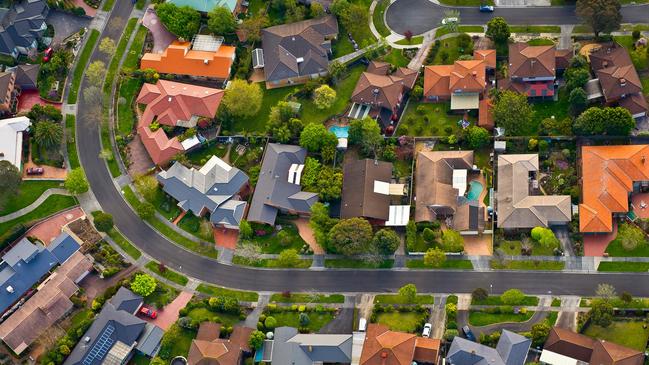Coronavirus: One in 10 families struggling to pay their mortgage
One in 10 households with a mortgage say they experienced trouble meeting repayments over the four weeks to mid-October.

One in 10 households with a mortgage say they experienced trouble meeting repayments over the four weeks to mid-October, more than twice the proportion during the peak of the COVID-19 recession in June.
The latest Bureau of Statistics household COVID-19 impacts survey reveals the share of mortgage holders struggling to pay the loan on their home or investment property had jumped from 5 per cent in June to 11 per cent just four months later.
While there have been signs the economy is recovering strongly from the sharpest contraction since the Great Depression, the transition away from government stimulus and income support is leaving some struggling to fill the gap.
AMP chief economist Shane Oliver said problem loans might be resurfacing as support measures were wound back and banks got tougher on borrowers who received repayment deferrals through the crisis.
“Some companies may have stopped JobKeeper payments and let workers go as they didn’t think the jobs would be coming back,” Mr Oliver said.
Income support measures such as the wage subsidy scheme kept many households afloat as the government closed large parts of the economy and shuttered thousands of businesses to suppress the spread of the virus.
Before the first JobKeeper payments in early May, 13 per cent of households with mortgages told the ABS they had struggled to meet repayments over the previous four weeks — a proportion that fell to 5 per cent in June as government payments shored-up household finances.
The six-month loan deferral periods offered by the banks began to expire from the start of October, and lenders have been encouraged by resumed repayments on $150bn worth of home and business loans. Analysts, ratings agencies and the banks have not issued estimates of the number of eventual defaults as a result of the recession, other than to say they will be higher.
The major banks have been ploughing billions of dollars into extra bad debt provisions as a precautionary “war chest”.
At the end of last month, ANZ chief executive Shayne Elliott said: “We would expect the real pain, the real losses are more likely to come in the middle of next year.
“The difficulty will be in what happens when some of those support packages get removed, Mr Elliott added. “Inevitably they will.”
The ABS survey also points towards the difficulties some Australians may have in re-entering the workforce during a time of elevated unemployment and high uncertainty.
The jobless rate peaked in June and July at about 7.5 per cent, before rapidly retracing to a current 6.9 per cent.
Despite the official data showing signs of an improvement in the labour market, the ABS survey shows 10 per cent reported one or more people in their household had problems finding a job in the four weeks leading up to the survey, up from 6 per cent in June.
The Morrison government lowered the JobSeeker coronavirus supplement from the start of October, and reinstated mutual obligations for those on unemployment benefits from September 28 — developments which may have prodded more to try to look for work. (Victorians were exempt.)




To join the conversation, please log in. Don't have an account? Register
Join the conversation, you are commenting as Logout